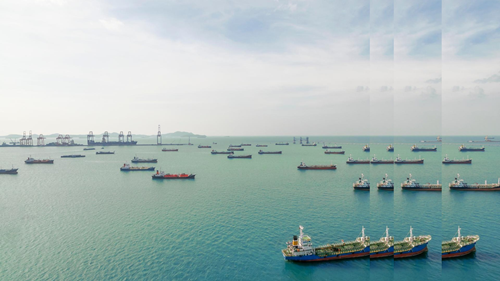German Supply Chain Act update: Federal Office for Economic Affairs and Export Control investigates possible violations of the Supply Chain Act
The Federal Office for Economic Affairs and Export Control (Bundesamt für Wirtschaft und Ausfuhrkontrolle – the “BAFA”) “) has announced that it is investigating 58 German companies for possible violations of the German Act on Corporate Due Diligence Obligations in Supply Chains (Lieferkettensorgfaltspflichtengesetz ‒ the “Supply Chain Act”). It would appear that this is the first case of its kind and that it raises complex questions which are yet to be clarified by the courts.
Public strikes against Polish company trigger investigation
In the spring and summer of 2023, drivers from a Polish transport company held strikes at a service station on a German motorway for several months. The drivers complained about inhumane working conditions at their employer and unpaid wages. Several German media outlets reported on the strikes. When the drivers went on a hunger strike in the summer, the Federal Minister of Labour, Mr Heil, intervened so as to have the BAFA conduct a special audit on the basis of the Supply Chain Act. This was because there were goods belonging to German companies included in the freight. In September 2023, employees of the BAFA spoke to the drivers, seized numerous waybills on site for evidentiary purposes and analysed them. It turned out that there were 58 German companies subject to the Supply Chain Act which were using the services of the transport company.
The Supply Chain Act as a gateway for investigative measures against German companies
The case is a novelty and shows that the Supply Chain Act, which only recently entered into force, is already acting as a gateway for official investigative measures, including the possible imposition of fines. At first glance, what is remarkable is how the companies concerned came to the supervisory authority’s attention “through the back door”. The starting point for the strike was in fact the precarious working conditions said to prevail at the Polish transport company, but not the work situation at the German companies. From the perspective of the Supply Chain Act the accusation is a different one: companies obliged under the Supply Chain Act need to check their direct business relationships with other companies for human rights and environmental risks or violations and take appropriate measures if necessary. Due to the strikes that had occurred in the spring and the associated media coverage, the companies were considered to be aware of the drivers’ working conditions.
Unresolved issues
So-called indirect suppliers, such as subcontractors, who are often used in the transport industry, are not subject to the Supply Chain Act’s due diligence obligations from the outset. A company only has an obligation to act if it has actual indications that a violation of a human rights-related or an environment-related obligation at indirect suppliers may be possible (section 9(3), sentence 1 of the Supply Chain Act). Some legal scholars have expressed doubt as to whether this provision satisfies the principle of legal certainty under constitutional law so as to allow administrative fines to be imposed. In addition, in spite of the interpretation guidelines in the BAFA’s FAQ and guidance, the provision raises complex questions that have not yet been clarified by the courts:
- What kinds of requirements should be placed on the quality and level of detail of the indications that make a violation appear possible? For example, does a specific company have to be named?
- Are publications on the internet or broadcasts on television sufficient? This at least is doubtful because the Supply Chain Act stipulates that the information has to be available to the company. This is only likely to be the case if a relevant person within the company is or must be aware of the information, for example through a report in the mandatory complaints channel.
- When is there a risk of repetition and what are the requirements for appropriate and effective remedial measures? Finally, a company only has to terminate its business relationship with the company concerned under narrow conditions and as a last resort (section 7(3) of the Supply Chain Act).
Conclusion and outlook
The Supply Chain Act continues to raise numerous complex questions. At the same time, it is to be expected that the Act will increasingly serve as a gateway for investigative measures by the supervisory authority in the future. Companies subject to these obligations should be prepared for this and take the necessary measures and document them in a verifiable manner. In addition, it is foreseeable that companies will have to pay more attention to properly identifying risks or possible violations and, where necessary, take adequate measures.
Well
informed
Subscribe to our newsletter now to stay up to date on the latest developments.
Subscribe now









